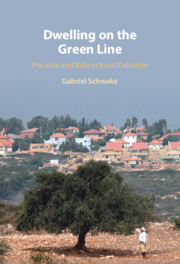
- Cited by 4
-
Cited byCrossref Citations
This Book has been cited by the following publications. This list is generated based on data provided by Crossref.
Schwake, Gabriel 2022. From Homes to Assets and From Pioneers to Shareholders: An Evolving Frontier Terminology. Urban Planning, Vol. 7, Issue. 1,
Schwake, Gabriel and Yacobi, Haim 2024. Decolonisation, gentrification, and the settler-colonial city: Reappropriation and new forms of urban exclusion in Israel. Environment and Planning C: Politics and Space, Vol. 42, Issue. 4, p. 618.
Schwake, Gabriel and Staničić, Aleksandar 2024. Post-Socialist Neoliberalism: Towards a New Theoretical Framework of Spatial Production. Urban Planning, Vol. 9, Issue. ,
Schwake, Gabriel and Allegra, Marco 2024. STUDENTWASHING: A NEW TERRITORIAL STRATEGY IN ISRAEL/PALESTINE. Geographical Review, Vol. 114, Issue. 2, p. 206.
- Publisher:
- Cambridge University Press
- Online publication date:
- March 2022
- Print publication year:
- 2022
- Online ISBN:
- 9781009071246


